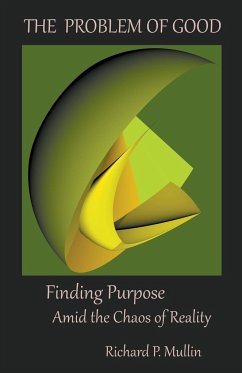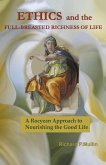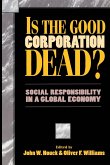The Problem of Good defines the materialist age as one in which the predominate view reduces all reality to that studied by the physical sciences. According to materialism, all reality, including thought, consists of impersonal forces that have no purpose and are neither good nor bad. This book attempts to show the reasonableness of rejecting materialism, and affirming that thought and purpose are real. Importantly, we can hope for and work for that which constitutes the Good. If there is a problem of evil leading some to reject the notion of God and purpose in the universe, there is likewise the Problem of Good, how to explain its existence, as well as the presence of purpose. This work is readable even without formal training in philosophy and invites the reader to embrace a vision of the world that embraces the good and encourages us to make a better world.
Bitte wählen Sie Ihr Anliegen aus.
Rechnungen
Retourenschein anfordern
Bestellstatus
Storno








